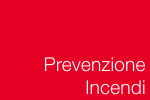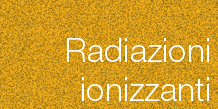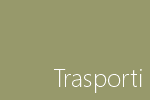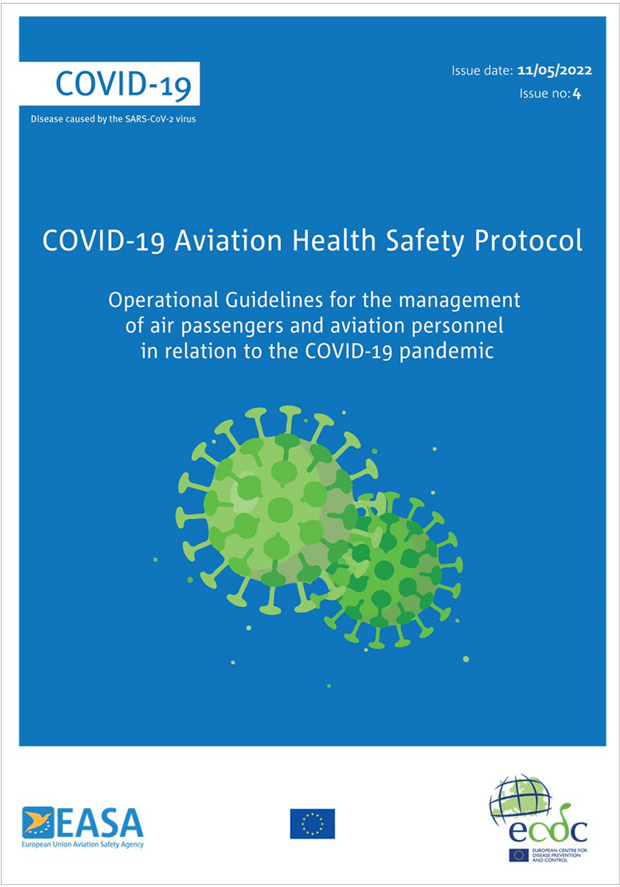COVID-19 Aviation Health Safety Protocol
COVID-19 Aviation Health Safety Protocol: Operational guidelines for the management of air passengers and aviation personnel in relation to the COVID-19 pandemic
EASA, ECDC 11.05.2022
This document is intended to provide support to European Union/European Economic Area (EU/EEA) Member States’ national authorities and aviation stakeholders to ensure, in a coordinated manner, the health and safety of passengers and the aviation personnel who serve them, by maintaining safe and secure operations while minimising the risk of SARS-CoV-2 transmission.
The document incorporates the latest scientific evidence and expert opinion from ECDC and EASA presenting recommended non-pharmaceutical interventions and other measures customised for air travel.
Wearing face masks at airports and inflight should be aligned with national measures on wearing masks in public transport and transport hubs. If either the departure or destination States require the wearing of face masks on public transport, aircraft operators should require passengers and crew to comply with those requirements inflight, beyond 16 May 2022. Further, as of 16 May 2022, aircraft operators, during their pre-flight communications as well as during the flight, should continue to encourage their passengers and crew members to wear face masks during the flight as well as in the airport, even when wearing a face mask is not required.
Member States should ensure that their travel-related measures are communicated effectively, in a timely and well-coordinated manner to avoid being imposed unilaterally, which could lead to confusion in travellers and a reduction in compliance. Experience during the past two years has demonstrated that coordination and communication of measures are essential to ensure optimal implementation and de-escalation of measures.
Where States still enforce entry measures, vaccinated people and those who have recovered from COVID-19 within the previous 180 days, who are not arriving from very high-risk countries or areas with community circulation of Variants of Concern (VOCs) and who can provide evidence of that by using the Digital Covid Certificate (DCC), or for third country nationals by using similar means of certification, should not be subject to testing or quarantine. States should consider accepting vaccination certificates for vaccines approved by national authorities or the World Health Organization (WHO). In this regard the document emphasises the use of ‘one-stop’ principles and the importance of a risk-based approach in accordance with safety management system principles.
For people who are not vaccinated and/or who have not recovered from COVID-19 within the previous 180 days, a risk-based approach to entry measures should be considered based on the Council Recommendation (EU) 2022/107 and the principles detailed in this document.
It is expected that the preventive measures recommended in these operational guidelines can be gradually scaled back over time in line with a reduction of the risk level through the roll-out of vaccination campaigns.
ECDC and EASA are constantly monitoring the epidemiological situation and will adjust the current recommendations as appropriate.
Fonte: ECDC
Collegati




















